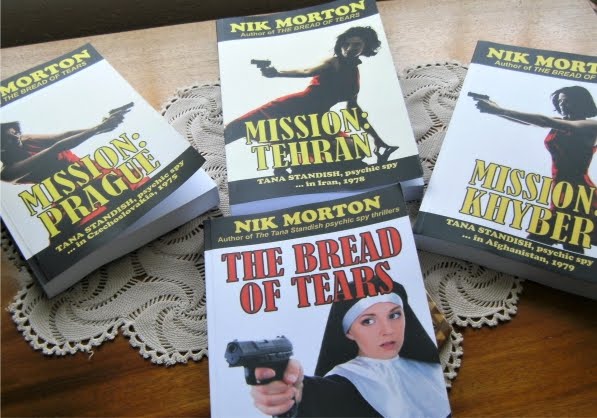Neil Brand
Neil Brand has
been accompanying silent films for nearly 30 years, regularly throughout the UK
and at film festivals and special events around the world, including Australia,
New Zealand, America, Israel, Sweden, Denmark, France, Germany, Ireland,
Luxembourg, and, in Italy, the Bologna, Aosta, Bergamo and Pordenone festivals
where he has inaugurated the School of Music and Image.
Training originally as an actor, he has made his name as a writer/performer/composer, scoring BFI video releases of such films as South (Shackleton's Journey to the South Pole), The Ring by Alfred Hitchcock, the great lost film The Life and Times of David Lloyd George and Early Cinema, avant-garde cinema and Russian pre-Soviet cinema. New DVD releases for the Danish Film Institute and Lobster Films, Paris as well as a highly acclaimed jazz score for the 1927 Anna Mae Wong movie Piccadilly which premiered live in September 2003 at the Lincoln Centre, New York and the Barbican concert hall in March 2004. His most recent DVD scores are for Silent Dickens, Silent Britain, The Cat and the Canary (1927) and the Laurel and Hardy short ‘You’re Darn Tootin’.
Training originally as an actor, he has made his name as a writer/performer/composer, scoring BFI video releases of such films as South (Shackleton's Journey to the South Pole), The Ring by Alfred Hitchcock, the great lost film The Life and Times of David Lloyd George and Early Cinema, avant-garde cinema and Russian pre-Soviet cinema. New DVD releases for the Danish Film Institute and Lobster Films, Paris as well as a highly acclaimed jazz score for the 1927 Anna Mae Wong movie Piccadilly which premiered live in September 2003 at the Lincoln Centre, New York and the Barbican concert hall in March 2004. His most recent DVD scores are for Silent Dickens, Silent Britain, The Cat and the Canary (1927) and the Laurel and Hardy short ‘You’re Darn Tootin’.
Brand has toured to Finland’s ‘Midnight Sun’ Festival, Padua Opera House,
Kilkenny comedy festival, the Middle Eastern International Film Festival and
throughout the UK and abroad with his ‘hilarious and touching’ one-man-show
‘The Silent Pianist Speaks’. He has
written the title music and many scores for TV documentaries including Silent
Clowns, Silent Britain, Great Britons, The Real Stephen Hawking, The Crimean
War, In The Wild: Pandas with Debra Winger, Great Railway Journeys as well as
scores for over 70 Radio 4 dramas including War and Peace, the Box of Delights,
Brideshead Revisited, Showboat, and Sony award winner A Town Like Alice.
In his
overview of cinema music, Brand tells us that the movie score is intended to
make the audience hear what you need to – altering the emotional effect the
movie makes by the sound attached. Brand moved through the silent era, where
films were accompanied by a piano, orchestra or an organ, through the invention
of the ‘click track’ to the point in 1933 where Max Steiner made film history
by underscoring King Kong.
There
were many interesting insights – the simple sequence of notes that signifies a
particular character (latterly, the character’s theme), the way Erich Wolfgang
Korngold utilised three different themes in a single scene to illustrate the
shifting mood of a conversation in Nottingham Forest. Then there is the score
of Bernard Hermann for Psycho, with the violin line for the shower scene
slashing sharply down the page, in time with the knife cuts – ironically, Hitchcock
hadn’t wanted any music for this scene, but Hermann overrode him!
Thanks to
composers like Korngold, Steiner and Hermann, classical style of music
dominated the movies for many years. Brand then looked at how jazz and pop
music became acceptable for soundtracks. John Barry was shown, emerging from
his pop incarnation, The John Barry Seven, to Oscar-winning composer.
And
finally, Brand showed how synthesisers took over. Not least, the Theremin,
invented by a Russian of that name in 1928. This instrument was used by Miklós Rózsa in Hitchcock’s Spellbound and Bernard
Hermann in The Day the Earth Stood Still, which led to the sound being adopted
for almost all science fiction movies thereafter!
We were
treated to interviews with some of the movie soundtrack greats – though never
enough are included, inevitably. Richard Sherman, talking about his Mary
Poppins music, Vangelis talking about Chariots of Fire and Blade Runner, and
Hans Zimmer discussing how his music affected the opening scene of Gladiator (I
think he was robbed at the Oscars!). It was an audio-visual treat for any film
buff.
Gladiator
Sadly, I
feel that the music in many films (for TV or the theatre) now compromises the
film, instead of complementing it. Recent films such as The Dark Knight Rises,
A Good Day to Die Hard, TV’s Dr Who, and many US TV imports (though so far not
Game of Thrones); the list is becoming longer. Usually, the pace of a film
means that information has to be imparted ‘on the run’ so to speak, as there
are few quiet moments, so drowned out exposition can ruin a viewer’s
understanding of the plot and character motivation.
I get
really irritated where a character is saying something in a dramatic moment but
I can’t hear what was said. The music is dominant, drowning out the words, time
and again. The blame must lie squarely with the director, who has the final
say. The director knows what has been said by the character, so he doesn’t
actually ‘not hear’ the words, they’re lodged in his head anyway. If I was the
actor or scriptwriter for those drowned out scenes, I’d be mightily miffed.
* * *






























No comments:
Post a Comment